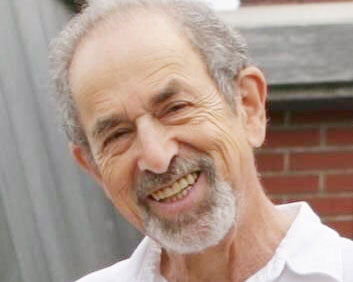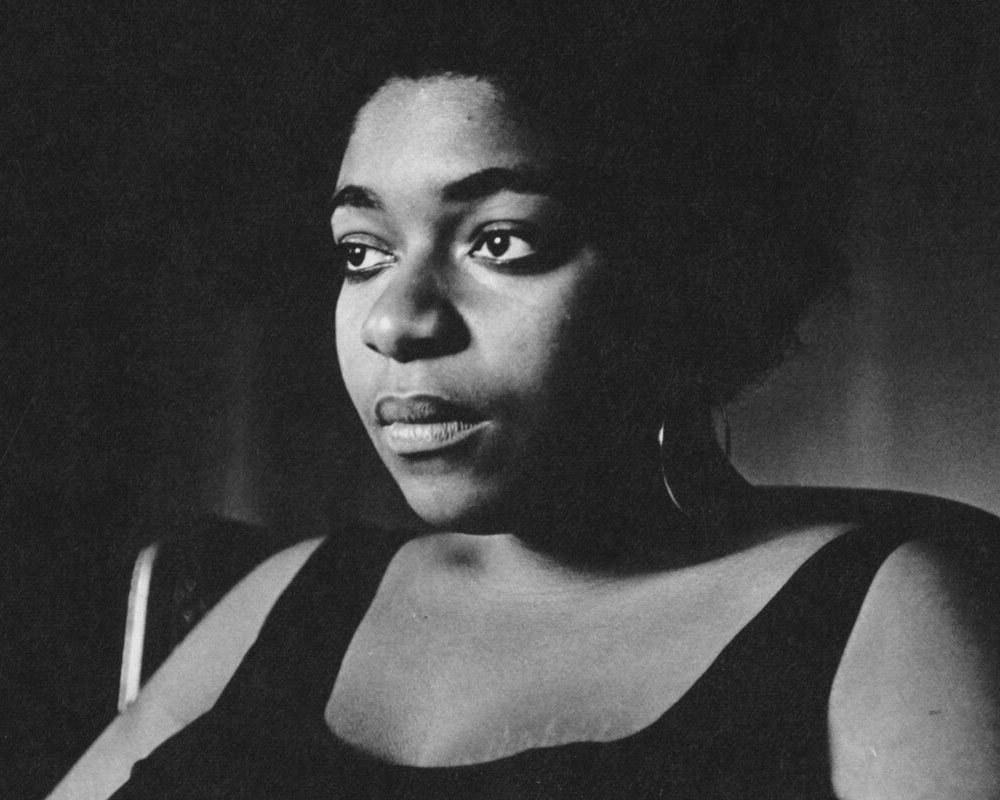Journalist, activist, witness to history
Oznathylee Howell Koglin ’74

Civil rights activist, journalist, and poet, Oz lived a remarkable life and bore witness to some of the nation’s momentous events, from the civil rights movement to the AIDS epidemic.
Born in 1939 to the Rev. Cajus Howell and Leatha Johnson Howell in Morvin, North Carolina, Oz grew up in St. Louis with a strong interest in journalism. But in the early 1960s, most newspapers wouldn’t hire reporters of color, so she got a job at the St. Louis Argus, one of the nation’s oldest African American newspapers, starting out as a clerk and rising to become its editor.
As a reporter in St. Louis, she covered some of the most important events of African American life, and interviewed prominent figures including Martin Luther King, Cassius Clay (Muhammad Ali), Malcolm X, and President Lyndon Johnson.
She later became one of the founders of the Mid-City Community Congress, a grassroots community action group that fought police abuses and discrimination in housing. She spearheaded a campaign to save the apartment building she lived in, reported to have been home to Tennessee Williams when he wrote The Glass Menagerie. The building is now listed on the St. Louis historic registry.
She was also one of two founding directors of the New Life Center, a five-church coalition to support pregnant teenagers, and a frequent interviewer on public affairs programs, including her own radio show, where she interviewed professionals about their work with the goal of getting dropouts back in school.
Her community activity earned her a fellowship from the Danforth Foundation, which offered to pay for four years of study in a program of her choice. Oz was 30 years old and decided, “If I was going to get the chance to go to college full time, I wanted to get the best damn liberal arts education possible.” She chose Reed, where she majored in American studies and wrote her thesis, “Black Life in Oregon, 1899–1907: A Study of the Portland New Age.” On file at both Reed and the Oregon Historical Society, it is an illuminating account of black lives in early 20th century Oregon. She also developed an interest in psychology. Governor Tom McCall appointed her one of the first public members of the Oregon Board of Psychologist Examiners, and she was a founding board member of the Oregon School of Professional Psychology.
After graduating from Reed, she returned to journalism and worked as a reporter for the Oregon Journal, which merged with the Oregonian in 1982, making her the first black woman to work as a full-time reporter for the state’s biggest newspaper.
Oz covered religion, medicine, and medical research. Many of the health subjects she wrote about were considered taboo at the time. But her articles about subjects such as urinary incontinence and irritable bowel syndrome caused the newspaper’s telephone lines to be jammed with callers wanting more information. Oz was also one of the first reporters in the country to write about the mysterious disease that came to be known as AIDS.
She was known was a meticulous, hard-nosed reporter with a devilish sense of humor. For years, she kept a collection of PR pitches that failed to spell her first name correctly.
In 2002, she retired from journalism and turned to writing poetry. Her 2008 chapbook, Gardens for Everyone, was a collection of poetry written from her perspective as a great-granddaughter of slaves growing up in the Jim Crow era. It was a finalist in the 2009 Portlandia Chapbook Contest, and the Oregon State Library selected it as one of 150 outstanding Oregon poetry books.
“Oz usually was the wisest person in the room,” said former Oregonian reporter Don Colburn. “She had street smarts and intuition, plus her own diligent reporting on the world. And her circle of friends—interlocking circles, like those Olympic rings—was the widest and deepest in town. Oz had that rare, uncanny knack for speaking her mind on any subject and still staying friends. Her writing—both in the newspaper and later in brief but large and original poems—grew out of her power of witnessing.”
Oz is survived by her husband, Robert A. Koglin, whom she married in 1988; her son, Bryan Howell Hopkins; and her daughter, Belacane Hopkins.
Appeared in Reed magazine: September 2016





![Photo of Prof. Marvin Levich [philosophy 1953–94]](https://www.reed.edu/reed-magazine/in-memoriam/assets/images/2022/LTL-levich1.jpg)
![Photo of President Paul E. Bragdon [1971–88]](https://www.reed.edu/reed-magazine/in-memoriam/assets/images/2020/Bragdon.jpg)
![Photo of Prof. Edward Barton Segel [history 1973–2011]](https://www.reed.edu/reed-magazine/in-memoriam/assets/images/2020/Segel.jpg)








































































